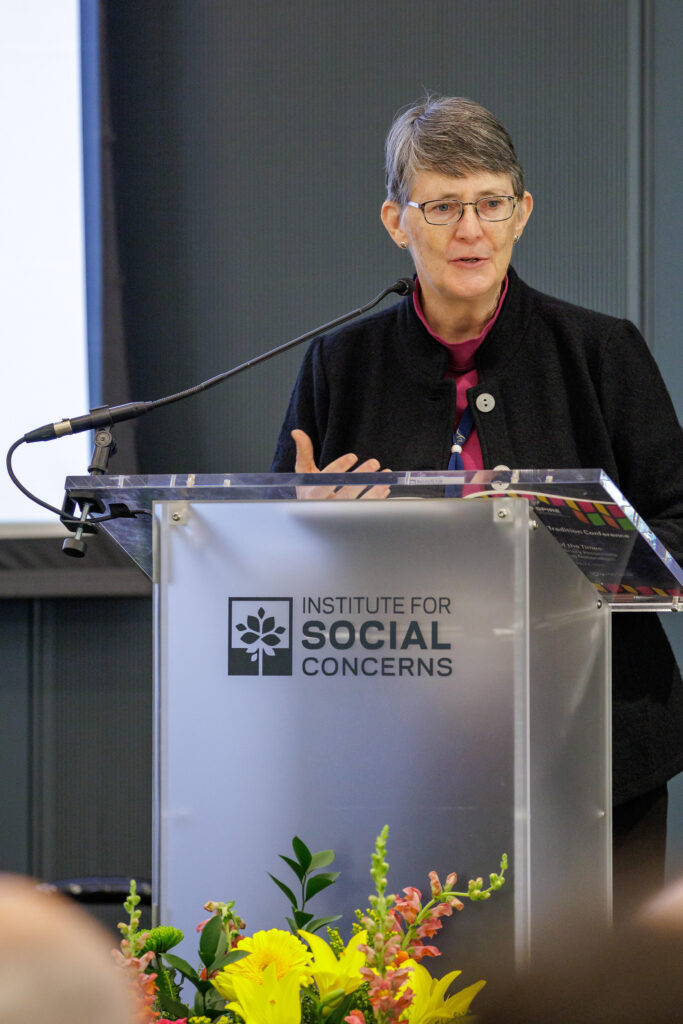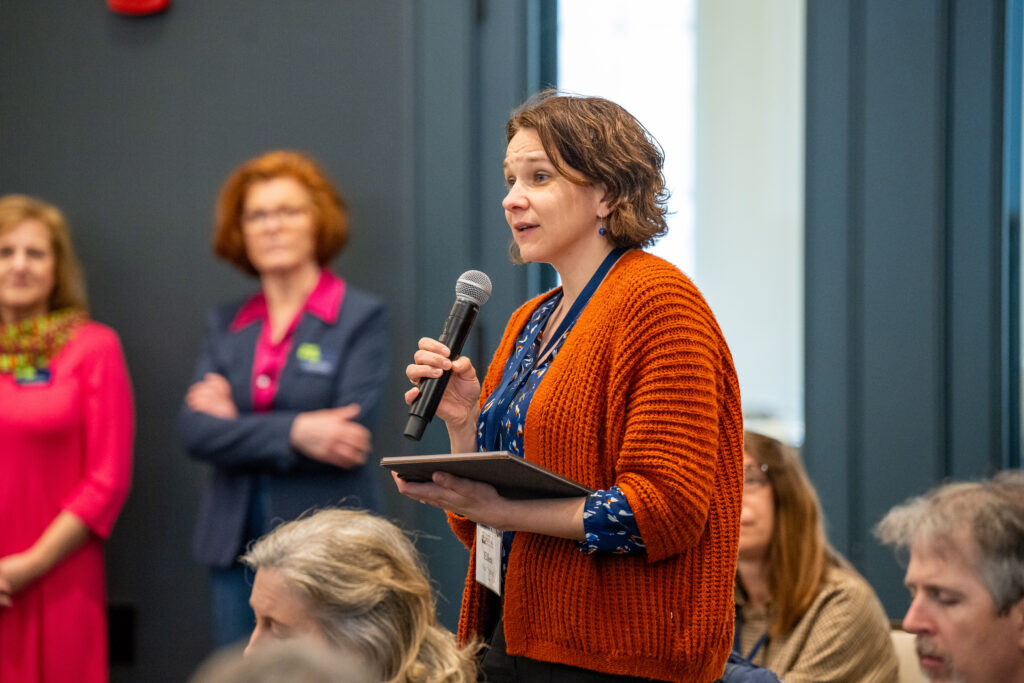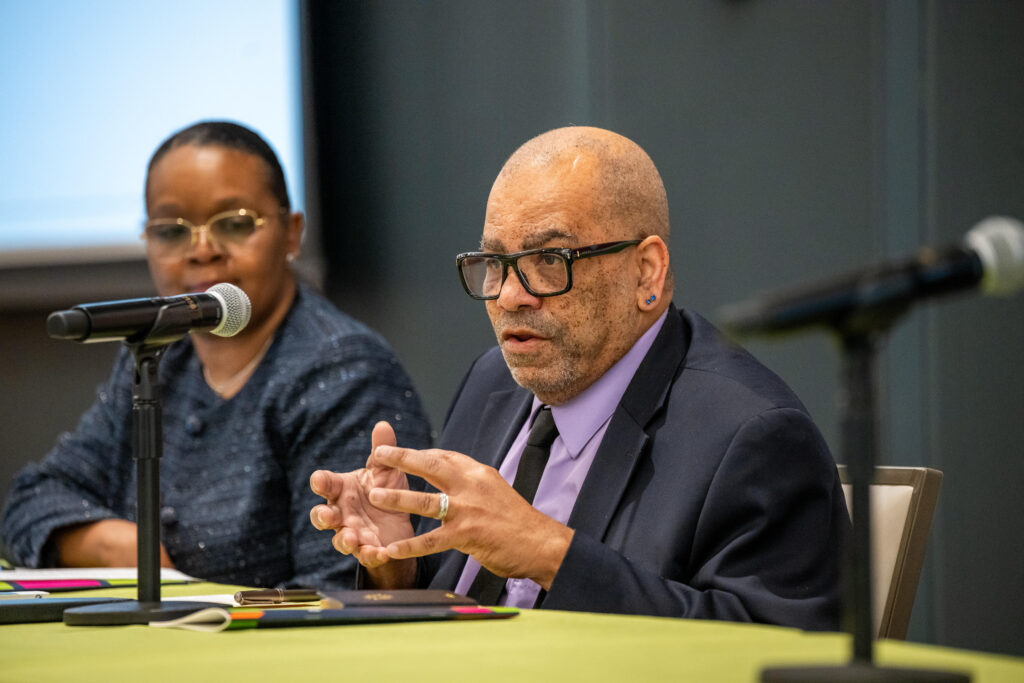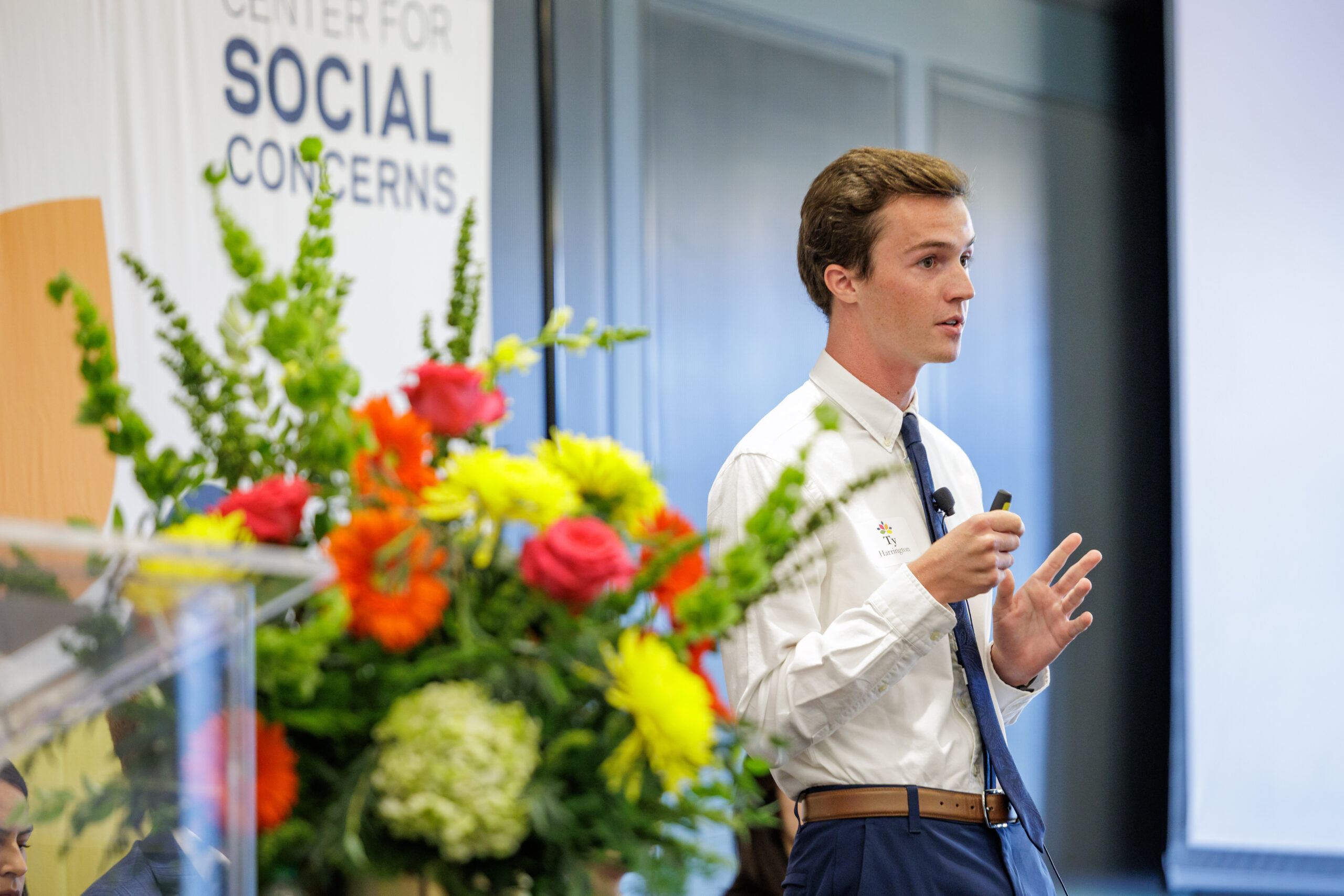An arc that bends toward beloved community
Catholic Social Tradition Conference highlights Notre Dame’s Catholic mission
April 16, 2025
In January, University of Notre Dame President Rev. Robert A. Dowd, C.S.C., and Rev. Hugh R. Page Jr., vice president for institutional transformation and advisor to the president, engaged in a conversation about the University’s commitment to building a beloved community as an expression of its Catholic mission and identity.
“My commitment to making sure that Notre Dame is a place where all the members of our community feel at home is grounded in my own vocation as a priest, as well as president of the University,” Dowd reflected. “I really want Notre Dame to be a community where we accompany each other well, where we support one another and encourage one another. And if we can be that beloved community that cares for one another and supports one another, I have no doubt that Notre Dame is going to be a place of amazing growth.”

Drawing on this mission, the 2025 Catholic Social Tradition (CST) Conference explored how the University and the Church can be a site of beloved community. “Our conference has an arc that bends toward beloved community,” said conference organizer Margie Pfeil, teaching professor with a joint appointment at Notre Dame’s Institute for Social Concerns and Department of Theology.
The conference commemorated the sixtieth anniversary of two significant Vatican II texts, Gaudium et spes (Pastoral Constitution on the Church in the Modern World) and Dignitatis humanae (Declaration on Religious Freedom). Released on the final day of Vatican II, these texts together invited serious consideration of the role of the Church in relation to the state. Based on Jesus’s teaching about interpreting “the signs of the times” (Matt. 16:3), Gaudium et spes calls the Church to “the duty of scrutinizing the signs of the times and of interpreting them in the light of the Gospel.”
To commemorate these documents, the conference engaged the theme Signs of the Times: Interdisciplinary Responses to Religious Nationalism. Over the course of the three days of the conference, March 20–22, the arc from religious nationalism to the beloved community was on display.
Thursday and Friday involved analyses of religious nationalism from a variety of disciplines and angles. In a Friday afternoon keynote, Catholic theologian Emilce Cuda, who is currently serving as secretary of the Pontifical Commission for Latin America at the Vatican, discussed the distinction between ideology and theology. “Ideology is the discourse about the idea. For us believers, God is not an idea. God exists.” In contrast, Cuda described theology as “discourse about what God tells us about what we are and where we must go.” Drawing from Gaudium et spes, she called this “a sign of the time”–namely, “how to know what God asks from us.”

On a Friday evening panel, Catholic social ethicist Ellen Van Stichel of KU Leuven, Belgium; political historian Ferenc Hörcher of Ludovika University of Public Service, Budapest, Hungary; and Catholic social ethicist Clemens Sedmak, director of Notre Dame’s Nanovic Institute for European Studies, discussed religious nationalism in the European context. “In today’s political context, we face an identity crisis,” Van Stichel stated. “And the question goes to the heart of our faith.” Hörcher held up Hungarian archbishop József Mindszenty, Polish priest Father Jerzy Popiełuszko, and Pope John Paul II as three exemplars that can help Catholics navigate politically polarized times.
The conference concluded on Saturday morning with a discussion of the beloved community as the ideal to which CST points. Keona Lewis of the Institute for Social Concerns and office of the provost engaged Rev. Page in conversation on the topic.
Page described 10 features of the beloved community, as he envisions it. For Page, the beloved community is a democratic ideal in which the social aggregate embraces everyone. But, more fundamentally, it is a theological vision in which the Christian conception of agape love is a touchstone. Drawing from CST, he described beloved community as a place of “human integrity and solidarity.”
“I think that’s a perfect way to lean into why we would talk about beloved community at an institution like Notre Dame or in a conference around Catholic social teaching,” Lewis responded. “The reason is because they align so well around ideas of justice and human dignity and caring for the common good and solidarity. All of these are concepts that align perfectly with your definition and our understanding of the beloved community.”

“Beloved community is happening all around us,” Pfeil stated, “and there is a larger narrative that can’t hold it captive.” She encouraged attendees, “We’re part of that larger story that is enfleshed on the ground.”
Beginning in 2011 with a celebration of 120 years since the promulgation of Rerum Novarum, the biennial CST Conference commemorates anniversaries of significant CST documents, including the fiftieth anniversaries of Pacem in terris in 2013 and Populorum progressio in 2017. Keynote speakers have included R. Scott Appleby, Lisa Sowle Cahill, Rev. Gustavo Gutiérrez, O.P., Sr. Helen Prejean, CSJ, and Miroslav Volf, among other prominent scholars and practitioners.
Supported by 16 campus partners, this year’s CST Conference was part of the 2024–2025 Notre Dame Forum focused on the question “What do we owe each other?” With funding from Notre Dame’s Democracy Initiative and the Franco Institute for Scholarship in the Liberal Arts, the conference hosted over 250 scholars and students from around the United States and the world. In addition to plenaries were dozens of concurrent sessions, including a lunch with the authors of the institute’s book series Enacting Catholic Social Tradition with Liturgical Press.
Related Stories
-
ReSearching for the Common Good: Jenifer Guadalupe Solano Becerra
-
Engaging South Bend—University faculty explore research collaborations with regional organizations through institute’s Engage South Bend tour
-
Two paths, one destination—Postbaccalaureate research fellows join the institute to research mass incarceration
-
Extraordinary good for this world—Researching for the Common Good Symposium celebrates undergraduate summer research
-
Social Concerns Summer Fellow returns to India for ongoing research





